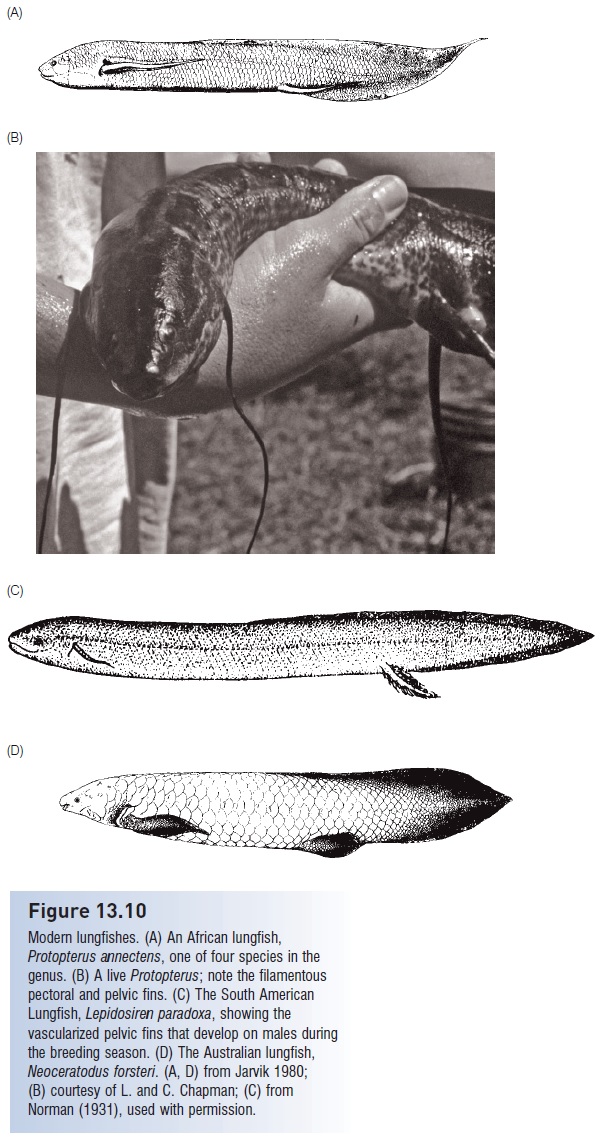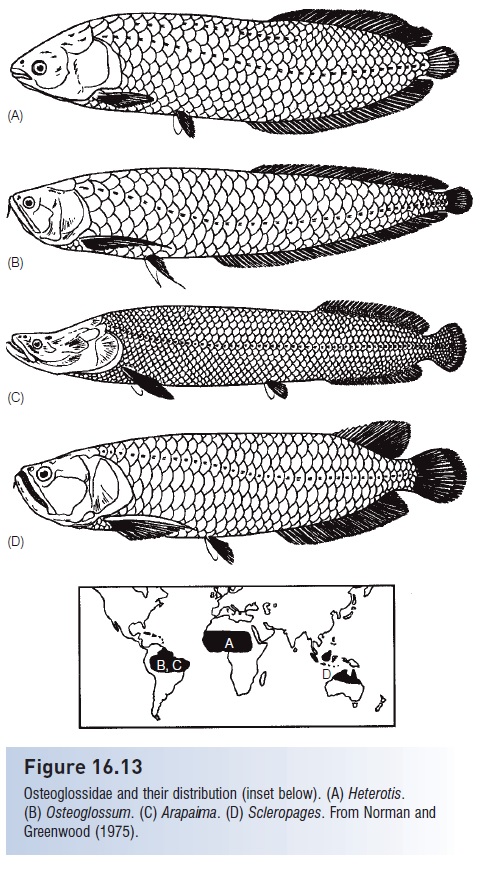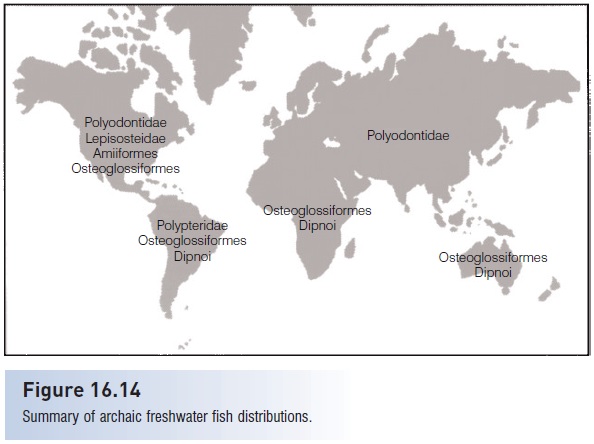Chapter: The Diversity of Fishes: Biology, Evolution, and Ecology: Zoogeography
Archaic freshwater fish distributions
Archaic freshwater fish distributions
The term archaic is used to refer to the distribution of six groups of primitive primary freshwater fishes that date back long enough that their present distribution may be based on a different arrangement of the continents. These groups include lungfishes (Dipnoi), Polypteriformes, Polyodontidae, Lepisosteidae, Amiidae, and Osteoglossomorpha.

There are three living genera of lungfishes (see Fig. 13.10): the South American Lepidosiren, African Protopterus, and AustralianNeoceratodus. Placement of Lepidosiren and Protopterus together in a single family, Lepidosirenidae, instead of in separate families, emphasizes their close relationships (Lundberg 1993). Neoceratodus is the most different lungfish, morphologically and physiologically, and has a relict distribution, restricted to portions of the Burnett and Mary rivers in southeastern Queensland (see Subclass Dipnoi, Order Ceratodontiformes: the lungfishes).
Other archaic groups include the bichirs, Polypteridae, which consist of two living African genera – Polypterus with 10 species and the monotypic Erpetoichthys (previously Calamoichthys) – and a fossil genus (†Dajetella) from the Late Cretaceous and Paleocene of Bolivia (Lundberg 1993). There are two species of paddlefishes, family Polyodontidae: one (Polyodon spathula) from the Mississippi River of North America and the other (Psephurus gladius) from the Yangtze River of China. The seven species of gars, Lepisosteidae, are usually considered as secondary freshwater fishes and comprise two genera, Lepisosteus and Atractosteus in North America, Central America, and Cuba, plus fossils known from India and Europe. Only one Recent species of Bowfin, Amiidae, is still extant:Amia calva of the United States; fossil species have been found on all the continents except Australia (Grande & Bemis 1998). Fossils show that the present-day distribution of these groups is a relict of their original, much wider distribution.
Another archaic group is the Osteoglossomorpha, the most primitive subdivision of the Teleostei. It is more speciose and more widespread than the Dipnoi. It includes six families (Fig. 16.13). There are four genera in the Osteoglossidae, two in each of two subfamilies (or families; Lundberg 1993): Heterotinae, Heterotis niloticus in the Nilo-Sudan Province of Africa and Arapaima gigasfrom the Amazonian lowlands and Guianas of South America; and Osteoglossinae, two species of Osteoglossum from South America and three species of Scleropages from Queensland, New Guinea, and Southeast Asia. The lungfish Neoceratodus forsteri andScleropages are the only native primary freshwater fishes found in Australia.

Figure 16.13
Osteoglossidae and their distribution (inset below). (A) Heterotis.(B) Osteoglossum. (C) Arapaima. (D) Scleropages. From Norman and Greenwood (1975).
Other osteoglossomorphs include the African freshwater butterfl yfish Pantodon (Pantodontidae), sister group of the Osteoglossidae; the North American Hiodontidae, the Goldeye Hiodon alosoides and the Mooneye H. tergisus; the African knifefishes (Notopteridae), and the African Mormyriformes, Mormyridae (elephantfishes), with 150 species; and the monotypic Gymnarchidae (Gymnarchus niloticus). Archaic fish distributions are summarized in Fig. 16.14.

Figure 16.14
Summary of archaic freshwater fish distributions.
Related Topics